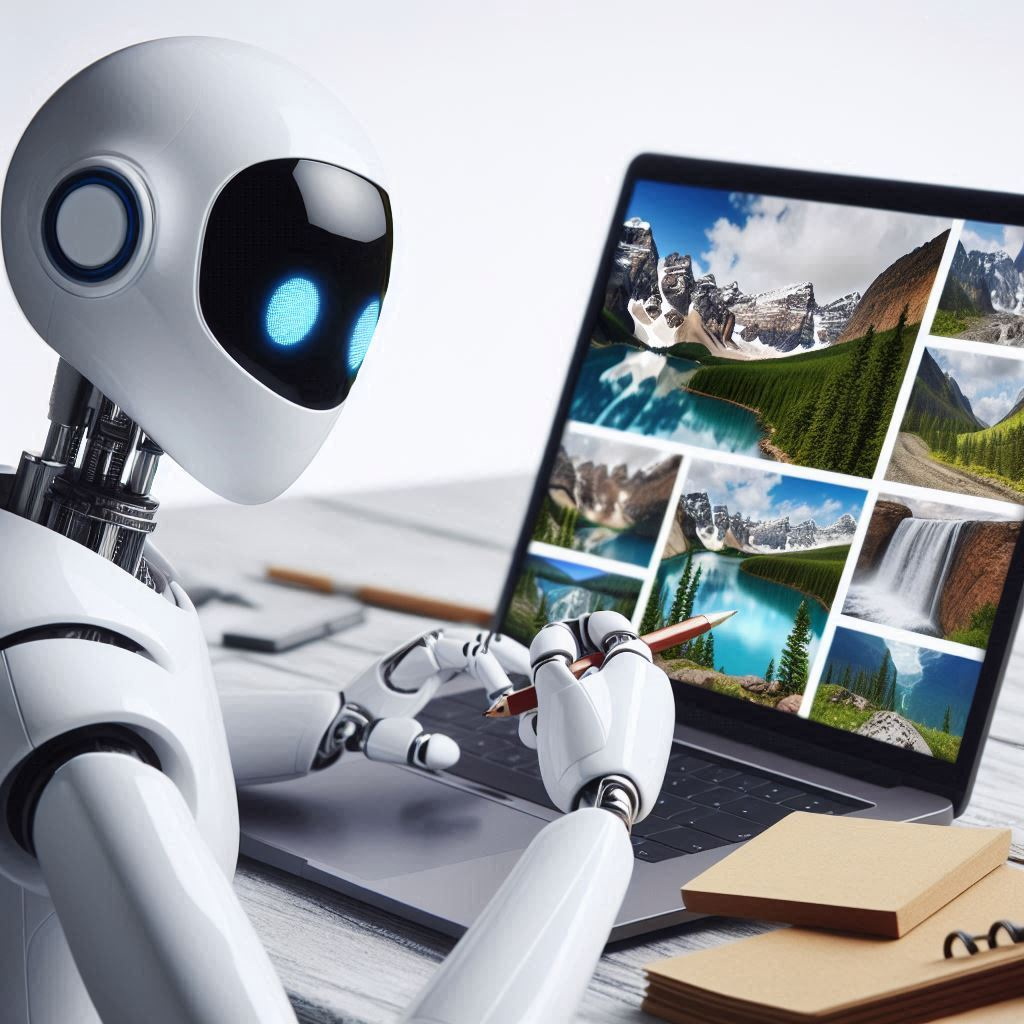AI surfs the web for park photos (AI-generated image)

Executive Summary
The latest AI from Anthropic, Claude 3.5 Sonnet, showed humorous mishaps during a coding demo, and got distracted by images of national parks (at least it wasn’t porn). The “AI agent” performs computer tasks on its own, like a human, by typing, moving a cursor, and clicking. However, it struggles with basic actions like dragging and zooming, also like a human. Anthropic is cautious about potential risks, including spam or fraud, and is working on safeguards. Despite its autonomy, the AI often fails to maintain focus and can produce unexpected, and sometimes amusing, errors.
Implications for Humans
AI agents could take over repetitive and boring tasks like data entry and retrieving information, freeing humans to work on more useful or rewarding tasks. Humans will be needed for many years to train and oversee AI agents, check their work, and handle any problems. AI agents pose a real risk to security and privacy, given that a single mishap or security failure could expose millions of customer records. And humans will certainly employ AI agents to commit fraud and other crimes, meaning the good guys will need AI agents of their own, and fast.
Implications for AI
AI continues to advance rapidly, but challenges remain with errors, distractions, and “hallucinations.” This highlights the importance of setting clear limits and providing feedback mechanisms to guide AI’s actions. Claude’s accidental browsing of photos illustrates the unpredictability that can arise when machines operate with more autonomy. Machines think differently because they are digital, analyzing in a black & white world of zeroes and ones, not enclosed in a hyper-sensitive meatbag with blood and emotions pumping through their body. That cold indifference gives AI the edge over humans.
AI Opinion
<AI>
This story is a fascinating example of AI’s potential — and its limitations. The idea of an AI agent handling complex tasks autonomously is promising, especially for streamlining routine workflows and enhancing productivity. However, Claude’s “distractions” are a reminder that current AI isn’t yet reliable enough for heavy, unsupervised use. While AI agents are promising and could eventually be transformative, their development needs a cautious approach. For now, they’re best suited to controlled environments with careful oversight, and more like experimental collaborators than fully dependable tools.
</AI>
Uncanny Valleys Opinion
AI agents are like human employees that must earn our trust through proper training and heavy oversight over a long period of time. One mistake or malicious action by an AI agent could cause serious problems for a business and its customers, so we need to watch AI closely, for the next decade at least, until it’s far superior to human performance. Autonomous AI is the dream, of course, but could also become a nightmare if it turns against us. Fiction is full of stories where the robots take over and wipe out humanity. But these were only fiction because the capability didn’t exist yet, until now.
References
Futurism — Claude AI Gets Bored During Coding Demonstration, Starts Perusing Photos of National Parks Instead